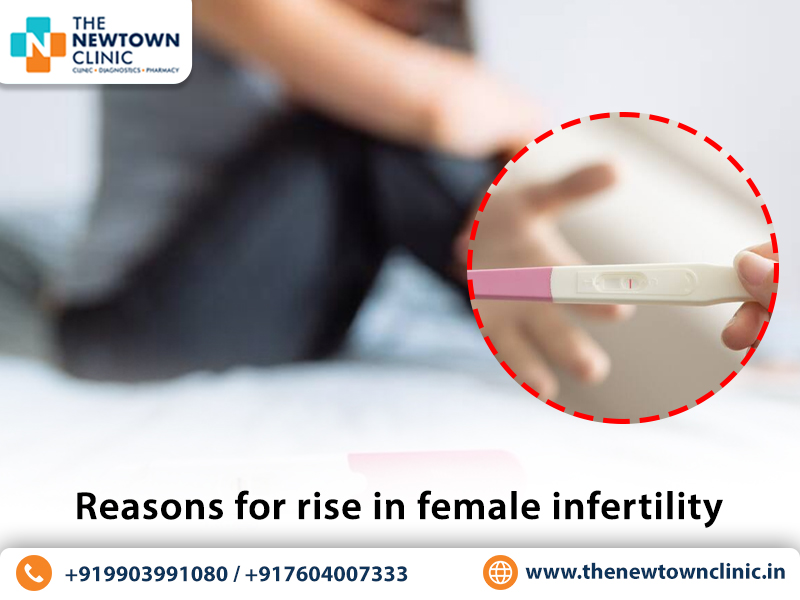Female infertility is a condition where a woman is unable to conceive despite regular unprotected intercourse. There are various reasons for the rise in female infertility, impacting women of different ages. Get to know more about these reasons from the best gynecologist in Newtown.
What are the reasons behind the rise in female infertility?
1. Polycystic Ovary Syndrome (PCOS): PCOS is an endocrine disorder among women of reproductive age. It can result in irregular menstrual cycles, the formation of small cysts on the ovaries, and hormonal imbalances. PCOS often leads to fertility issues by affecting ovulation and making it more challenging for women to conceive.
2. Endometriosis: Endometriosis is identified as a condition in which the uterus lining tissue grows on the outside of the uterus. This can cause scarring, pain, and interference with the normal functioning of the reproductive organs, leading to infertility.
3. Ovulatory Disorders: Conditions that affect ovulation, such as irregular menstrual cycles or absence of ovulation, can significantly contribute to female infertility. Hormonal imbalances, stress, obesity, or extreme weight loss can disrupt the regular ovulatory cycle, making it difficult to conceive, says the best gynecologist in Saltlake.
4. Pelvic Inflammatory Disease (PID): PID is an infection of the female reproductive organs caused by STIs. If left untreated, PID can cause damage to the fallopian tubes and other reproductive organs, leading to fertility problems.
5. Genetic Factors: According to one of the best obstetrician and gynecologist in Saltlake, in some cases, female infertility can be attributed to genetic factors. Genetic conditions affecting reproductive organs, hormonal regulation, or chromosomal abnormalities can impair fertility.
6. Medical Treatments and Procedures: Certain medical treatments, such as chemotherapy and radiation for cancer, can affect a woman’s fertility. Additionally, surgeries involving the ovaries or uterus may impact fertility potential.
7. Lifestyle Factors: Modern lifestyles often involve unhealthy habits that can negatively impact fertility. Factors such as excessive alcohol consumption, smoking, drug abuse, and poor dietary habits can all contribute to decreased fertility in women. Sedentary lifestyles and high levels of stress can also play a significant role in disrupting hormonal balance and ovulation.
8. Environmental Factors: Exposure to environmental toxins, pollutants, and chemicals present in the air, water, and food can contribute to female infertility. These environmental factors may disrupt hormonal balance and adversely affect reproductive health.
Consulting with the best gynecologist in Newtown is essential to navigate the complexities of infertility and explore suitable options for fertility preservation and treatment. With proper knowledge, we can work towards minimizing the impact of female infertility on individuals and families.

